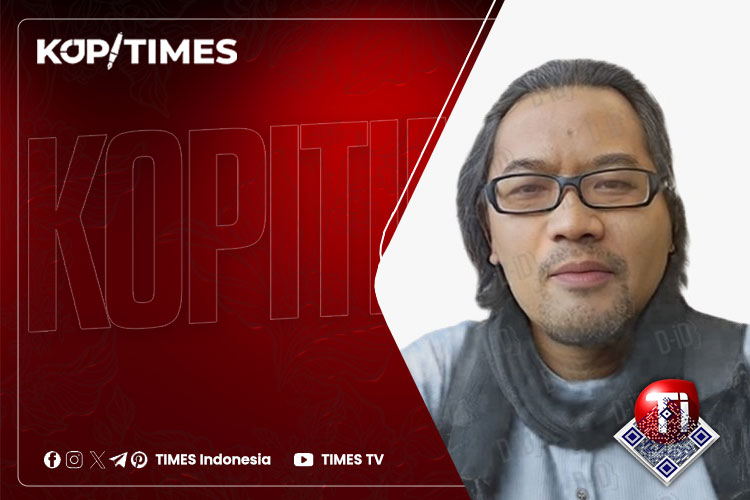Shaking Up Campus: Lecturers Required to Spend 70% on Research – Where Does the Future of Social Innovation, Humanities, and Islamic Studies Stand?

TIMESINDONESIA, JAKARTA – A surprising announcement from Prof. Stella Christie, Deputy Minister of Higher Education, Science, and Technology, mandates Indonesian lecturers to allocate 70% of their working hours to research activities. This ambitious policy aims to enhance the academic contribution to national innovation and technology development while strengthening the global standing of Indonesian universities.
However, the policy also presents significant challenges. Concerns have been raised regarding the readiness of infrastructure, funding, and human resources. These challenges are even more pronounced for fields within social sciences, humanities, and Islamic studies, which face unique obstacles in research development distinct from exact sciences and technology. This article aims to explore this policy through the lens of various academic theories, the emerging challenges, and its potential impact, especially in the fields of social sciences, humanities, and Islamic studies.
Advertisement
The Significance of Research in Higher Education: Why 70%?
Research is the backbone of higher education, particularly in the fields of humanities and Islamic studies, which play a central role in shaping societal, cultural, and religious understanding. In this context, the policy mandating 70% of lecturers' time for research reinforces the importance of their contributions to exploring, documenting, and expanding knowledge relevant to evolving social and religious challenges. The Theory of Academic Productivity highlights the essential role of research in enriching the knowledge imparted to students, establishing a direct link between theory and practice, and producing graduates who are more critical and broad-minded.
In the realms of humanities and Islamic studies, research contributions are invaluable for offering deep insights into ethical, moral, and spiritual issues often overlooked in science and technology. Additionally, the Triple Helix Theory, which emphasizes the connection between academia, industry, and government in driving innovation, is relevant in this context, although the approach may differ. Collaboration between universities, religious institutions, and the government can foster innovation in more social forms, such as community empowerment programs, contextual curriculum development, or projects addressing socio-religious issues.
Implementation Challenges: Infrastructure and Funding Limitations in Humanities and Islamic Studies
One of the main challenges in implementing this policy lies in the availability of sufficient infrastructure and funding, especially in the humanities and Islamic studies, which often lack access to research facilities such as labs found in the exact sciences. The Resource-Based View (RBV) highlights that research quality heavily depends on available resources, including adequate facilities. While laboratories are essential for natural sciences and engineering, humanities, and Islamic studies may require archival centers, libraries with extensive literature, or access to complex social data.
Collaborative Advantage Theory suggests close collaboration with relevant institutions or communities as a viable solution. In Indonesia, universities can work with religious institutions, community organizations, or historical documentation centers to provide access to essential resources. For example, in Islamic studies research, partnerships with pesantren, Islamic organizations, or interfaith communities could create opportunities for deep, participatory research. This way, infrastructure challenges can be addressed through a collaborative approach that leverages resources beyond the campus.
On the other hand, Institutional Theory underscores the importance of stable financial support to sustain research activities. In the humanities and Islamic studies, funding is often more limited compared to technology or natural sciences. This constraint could be addressed through public fundraising or crowdfunding platforms, particularly for research relevant to societal needs, such as studies on religious tolerance, social history, or curriculum development that integrates local and Islamic values.
Challenges in Human Resources and Lecturer Competency in Islamic Studies and Humanities
Human resource quality is a key factor in implementing research policies. However, many lecturers in Indonesia’s humanities and Islamic studies sectors face limitations in qualifications and specialized training. Human Capital Theory suggests that investing in human resource quality is a long-term commitment that significantly impacts productivity. To fulfill this policy, capacity-building programs are essential, such as PhD scholarships, in-depth qualitative research methodology training, and targeted mentoring in Islamic studies and humanities research.
Professional Development Theory underscores the importance of ongoing training so that lecturers stay up-to-date with the latest theories, methodologies, and practices in research. For instance, in Islamic studies, developing methodologies that integrate classical approaches with empirical or interdisciplinary studies could be highly beneficial. Additionally, universities could implement mentoring programs where senior lecturers guide junior faculty in conducting relevant, high-standard research.
Balancing Roles: Challenges for Humanities and Islamic Studies Lecturers
Many lecturers are concerned about balancing their dual roles as educators and researchers, particularly in fields like humanities and Islamic studies, where teaching often involves profound moral and ethical dimensions. Role Theory explains that role conflict can occur when individuals are required to perform multiple, sometimes conflicting, roles simultaneously. In this case, lecturers face the challenge of excelling in teaching while sustaining continuous research.
To address this, Work-Life Balance Theory suggests that institutions could offer support, such as research assistants or collaborative research opportunities, to alleviate lecturers' workloads. In the humanities, this division of responsibilities enables lecturers to focus on teaching while also pursuing research projects. Thus, lecturers can optimize their roles without compromising teaching quality.
Positive Impact on Social, Cultural, and Religious Development
Encouraging lecturers to engage more in research holds significant potential for social and cultural impact. Clayton Christensen’s Disruptive Innovation Theory suggests that innovation occurs when there is room for experimentation. In humanities and Islamic studies, research spurred by this policy is anticipated to foster fresh insights into religion, history, and culture that address contemporary challenges in Indonesia.
International collaboration is also a promising avenue. Global Knowledge Economy Theory indicates that universities active in research have greater access to global collaboration. Indonesian universities can establish partnerships with international institutions for research in Islamic studies, sociology, or history, broadening lecturers' perspectives and enhancing research quality. Additionally, international collaboration can introduce Indonesia’s local perspectives into global studies, enriching international literature with Indonesia's unique views and experiences.
Enhancing Reputation, Reducing Brain Drain, and Delivering Positive Societal Impact
With an increase in high-quality research, this policy will also strengthen Indonesia’s higher education reputation. Reputation Theory explains that a university’s reputation is directly linked to its contributions to research and innovation. The more research is recognized internationally, the stronger Indonesia’s universities’ standing, particularly in traditionally underrepresented fields like humanities and Islamic studies. This reputation will attract international students, raise interest in religious studies in Indonesia, and position the country as a center for Islamic studies in Southeast Asia.
In the long term, this policy is expected to help reduce brain drain, especially among academics in Islamic studies and humanities who are often tempted to work abroad due to limited research opportunities in Indonesia. Talent Retention Theory explains that research opportunities and favorable working conditions play a crucial role in retaining talent domestically. By creating opportunities for deep, relevant research, Indonesian academics will be more motivated to continue contributing at home.
In conclusion, the policy allocating 70% of lecturers' time to research is a significant breakthrough in strengthening Indonesia's higher education on the global stage. Despite the challenges faced, especially for the humanities and Islamic studies disciplines, the opportunities to build research capacity, bolster international reputation, and contribute tangibly to society are highly promising. Through collaborative strategies, sustained government support, and enhanced faculty skills, infrastructure and funding challenges can be effectively addressed.
If implemented successfully, this policy will not only strengthen science and technology in Indonesia but also elevate the humanities and Islamic studies, which hold substantial relevance for Indonesia's social and religious context. Thus, Indonesian universities have the potential to become leading research centers producing innovative, beneficial, and globally recognized solutions.
***
*) Mamdukh Budiman, Cnd PhD, Islamic Studies Universiti Muhammadiyah Malaysia.
**) Ikuti berita terbaru TIMES Indonesia di Google News klik link ini dan jangan lupa di follow.
| Editor | : Khodijah Siti |
| Publisher | : Rochmat Shobirin |

